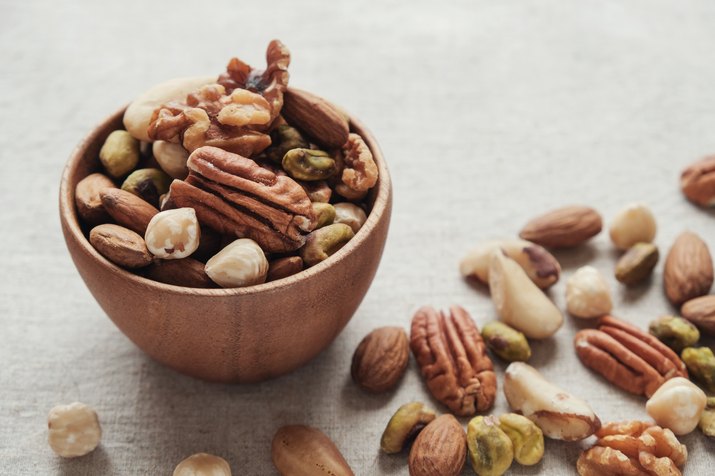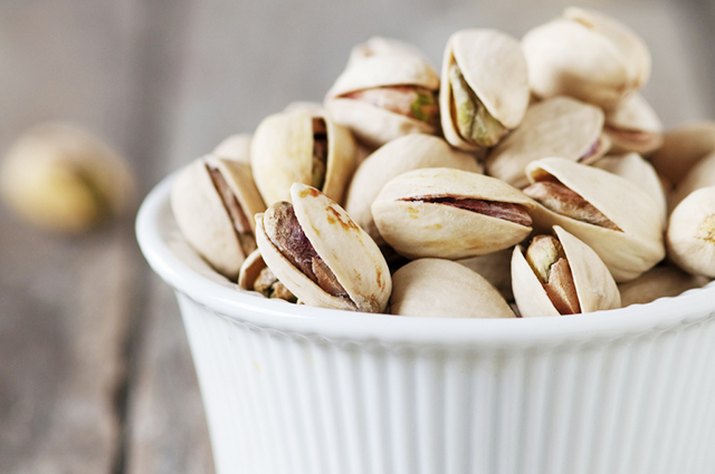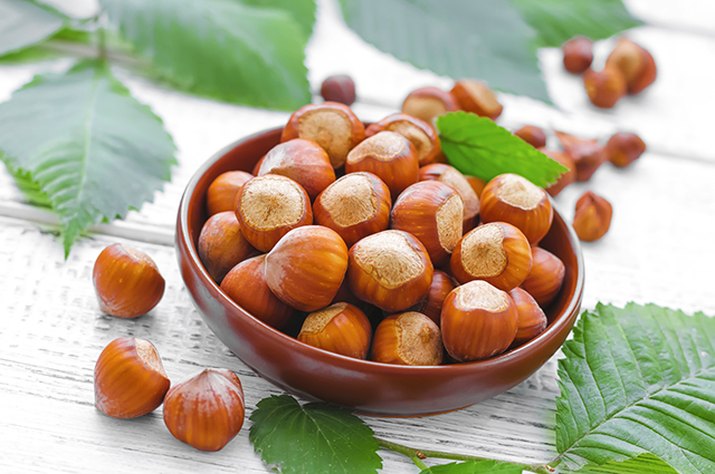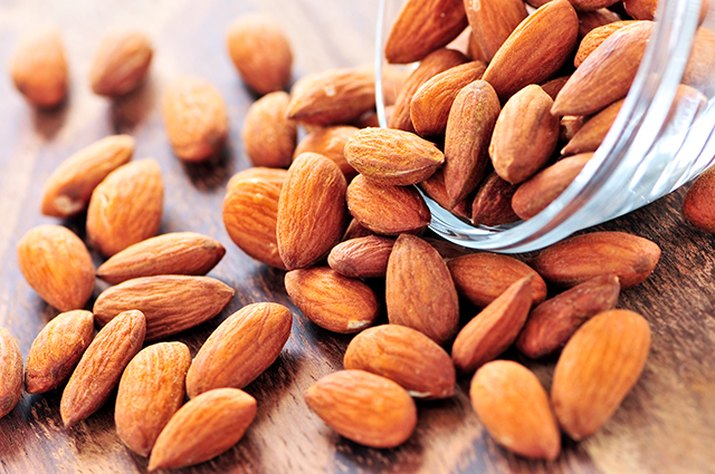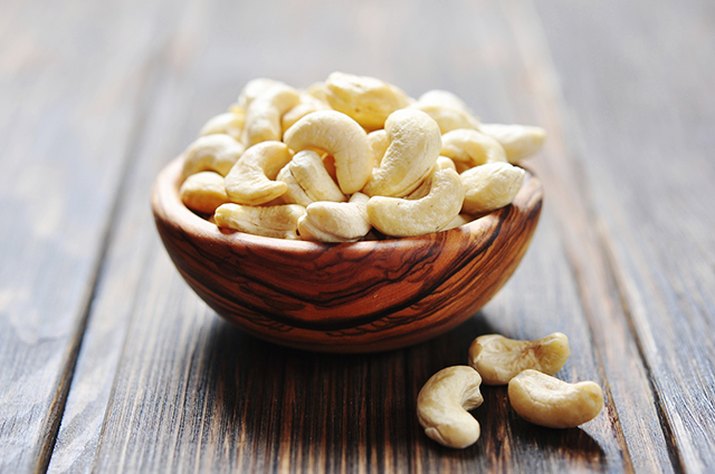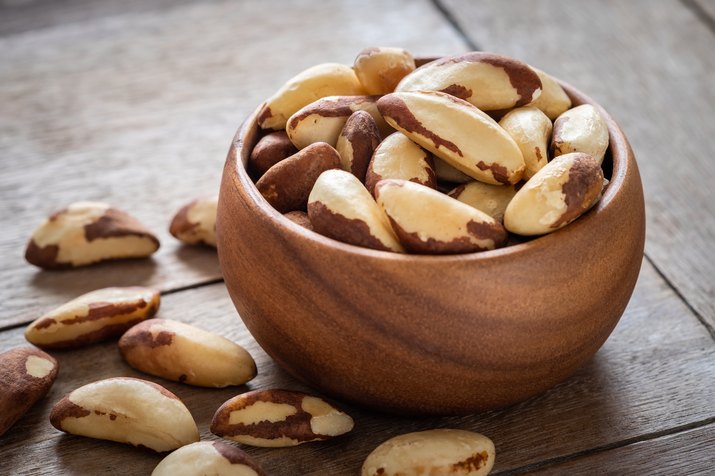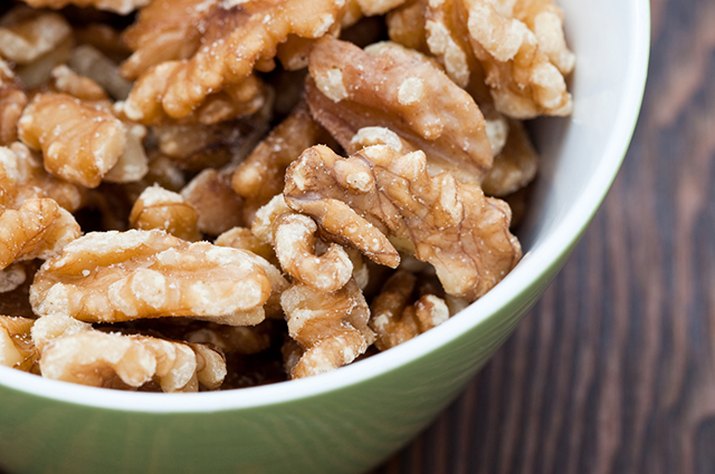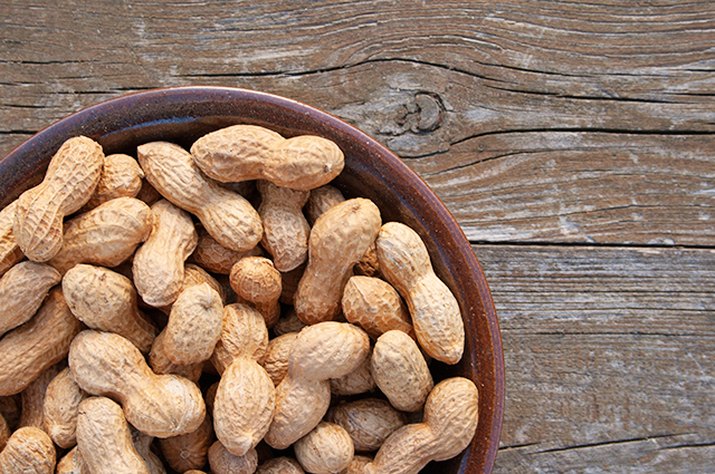Video of the Day
Video of the Day
references
- Nuthealth.org
- MyFoodData: "Nutrition Facts for Pecans"
- Mini Reviews in Medicinal Chemistry: "An Overview of the Modulatory Effects of Oleic Acid in Health and Disease"
- Journal of Agricultural and Food Chemistry: "Lipophilic and Hydrophilic Antioxidant Capacities of Common Foods in the United States"
- Harvard Health Publishing: "Eating Nuts Linked to Healthier, Longer Life"
- MyFoodData: "Nutrition Facts for Pistachios"
- Nutrients: "Effects of Hazelnut Consumption on Blood Lipids and Body Weight: A Systematic Review and Bayesian Meta-Analysis"
- Journal of the American College of Nutrition: "Almond Consumption and Cardiovascular Risk Factors in Adults With Prediabetes"
- MyFoodData: "Nutrition Facts for Cashews"
- New England Journal of Medicine: "Association of Nut Consumption with Total and Cause-Specific Mortality"
- Nutrients: "Health Benefits of Nut Consumption"
- MyFoodData: "Nutrition Facts for Brazil Nuts"
- National Institutes of Health: "Selenium"
- Journal of Nutrition: "Walnut Consumption is Associated With Lower Risk of Type 2 Diabetes in Women"
- Mayo Clinic: "Cholesterol: Top Foods to Improve Your Numbers"
- National Institutes of Health: "Magnesium"
- MyFoodData: "Nutrition Facts for Peanuts"
- MyFoodData: "Nutrition Facts for Macadamia Nuts"
- The American Journal of Clinical Nutrition: "Effect of a 2-year diet intervention with walnuts on cognitive decline. The Walnuts And Healthy Aging (WAHA) study: a randomized controlled trial"
